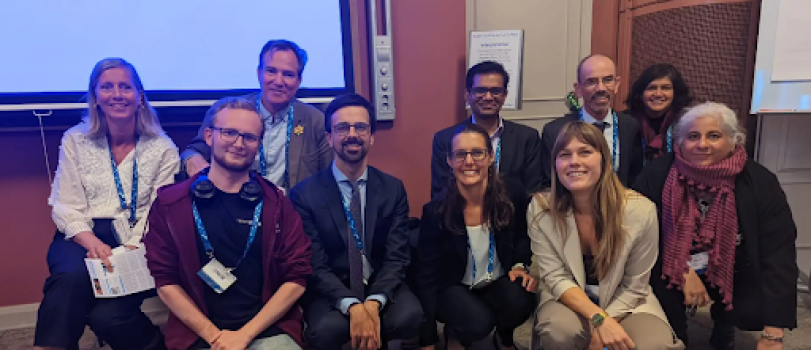Uncovering the Value of WASH Research through Partnership
Most of us are familiar with the pattern of doing research, disseminating findings, and hoping for uptake into policy and practice. If the research partners don’t involve potential evidence users early on in the process, however, most outputs end up not being used effectively, or at all.
In a session at 2022 World Water Week, USAID shared their new and focused approach for promoting stronger engagement between research teams and WASH implementation programs. USAID’s Action Research Initiative encourages sector-wide collaboration so that research feeds directly into implementation. It also increases the effectiveness and impact of WASH investments by positioning them within a strategic package.
The first iteration of the Water, Sanitation and Hygiene Partnerships and Learning for Sustainability (WASHPaLS) research program, implemented from 2016 to 2021, provided an example of building partnerships between researchers, government agencies, and UNICEF. These partners worked together to measure the effects of pro-poor WASH services and sustained behavior change.
One practical example comes from research into the use of targeted sanitation subsidies on sanitation infrastructure development among rural communities in Northern Ghana. These communities had previously participated in sanitation improvement programs and were declared “open defecation free.” WASHPaLS conducted a randomized controlled field trial which validated that targeted UNICEF and government sanitation subsidies better maintained open-defecation-free status, because eligible households could build more durable toilets. This collaborative study highlighted the importance of targeting financial assistance to ensure sustainable sanitation gains among the poor and vulnerable in Northern Ghana.
The WASHPaLS collaboration also showed that developing research with government agencies and their development partners is useful for identifying critical questions and for driving practical applications of research findings. Co-creation, which requires program-wide commitment, entails frequent consultation and co-learning; memorandums of understanding; workshops before and after research activities; and a mix of one-on-one sharing meetings and Community-wide discussions. One session participant said “Putting first priority on the alignment of objectives/reporting/communication between middle-management staff within each organization is leading to more successful partnerships.” The discussion groups agreed that involving the audience from the beginning and having adequate scale in the partnership is critical.
Building on the partnership model of research established through the first WASHPaLS program, USAID established a series of collaborative research programs that together address the Research Agenda’s priority objectives. These three initiatives launched in 2021:
- REAL Water – Rural Evidence and Learning for Water (factsheet available here)
- WASHPaLS 2 – Water, sanitation and hygiene partnerships and learning for sustainability (factsheet available here)
- URBAN WASH – Urban resilience by building and Applying New Evidence in WASH (factsheet available here)
Participants in the World Water Week session support a shift of language from “dissemination and uptake” to “co-learning and use.” They discussed whether USAID’s collaborative approach to applied WASH research could be widened to promote sector-wide co-learning by more frequent sharing of insights.
Breakout discussions identified the importance of short briefs and videos for sharing research findings with non-technical audiences. For example, the REAL-Water program presented a short video that illustrated the Water Quality Assurance Fund. One discussion group highlighted “infographics” as a preferred learning format. Weekly update sharing among USAID staff and partners dedicated to different WASH mechanisms, for example, helps to provide early notice of activities and avoid repetitive efforts.
In his closing remarks, Jeff Goldberg, Director of USAID’s Center for Water Security, Sanitation and Hygiene, remarked that USAID WASH research funding would continue to emphasize collaboration and transition from the dissemination of results to collaborative learning. Goldberg emphasized that the sector needs to transform how it works to better apply evidence and knowledge from different geographies and contexts.
This blog was crossposted from the Aquaya website. By the REAL Water team: Aline Saraiva Okello (RWSN), Karen Setty, Jeff Albert, and Ranjiv Khush of Aquaya


